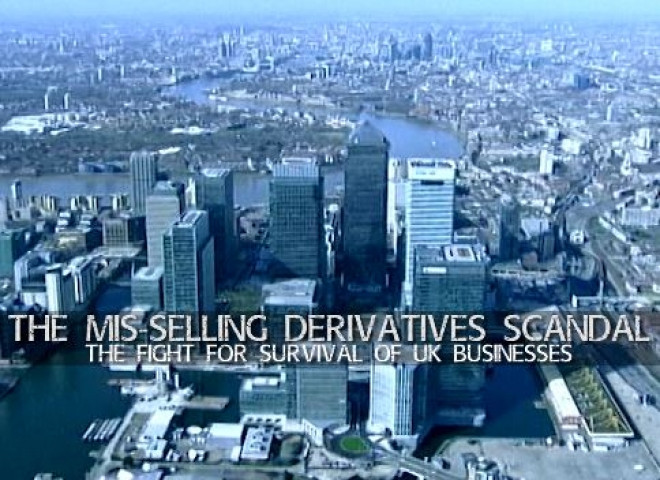Top 12 Business Stories 2013: Mis-Selling Derivatives Scandal

Britain's biggest banks mis-selling thousands of businesses complicated interest rate swap agreements is arguably one of the largest rolling, yet prolifically undetected, scandals in the country.
Although 2012 was the year that the scandal finally gained some concrete recognition from the regulator, the last 12 months have been riddled with deepening concerns and failed promises from Britain's major lenders.
IRSAs are contracts between banks and customers where typically one side pays a floating or variable rate of interest and receives a fixed rate of interest payments in exchange.
Such contracts are used to hedge against extreme movements in market interest rates over a given period. Companies that saw the value of these products move against them as rates fell during the recession now owe banks inordinate sums of money in yearly interest payments.
Despite the regulator installing a reviews process last year for banks to assess whether it has mis-sold complicated financial products to small-to-medium enterprises (SME) across Britain, thousands of firms are still awaiting an offer.
Arguably, the total £15m paid out in redress is a measly amount compared to banks paying out £17bn to mis-sold Payment Protection Insurance victims.
Over the last year, IBTimes UK has revealed that businesses are falling into administration and struggling to make ends meet after spending years contesting allegedly mis-sold products.
The Financial Conduct Authority (FCA) has not only vented its frustration over the slow pace of redress but pressure from independent experts and politicians, such as Guto Bebb, has at least forced some of the banks rethink their payments process.
While eight out of the nine banks have now agreed to split payments for initial redress and consequential loss, Barclays still remains the only firm to give customers the 'one or the other' option.
Furthermore, many banks are refusing to put aside money for consequential losses or hone in on the impact of contingent liabilities.
Latest data from the FCA shows that the scandal is likely to continue into 2014 as thousands of businesses are either waiting for a final determination or have yet to start the review process.
However, with politicians and lobby groups, such as Bully Banks putting pressure on the lenders and the regulator, to address the scandal, only time will tell if 2014 will mark the beginning of the end of the murky world of IRSA mis-selling.
Meanwhile, despite the FCA's chief executive Martin Wheatley claiming that around 60,000 businesses could be affected by the scandal in total, the situation has yet to gain as much media attention and traction as that PPI mis-selling or Libor fixing.
However, as interest rates remain at a record low for the foreseeable future and with banks still taking months or even years to offer customers redress, it looks likely that Britain's SMEs will be fighting for justice for many more years to come.
© Copyright IBTimes 2025. All rights reserved.






















